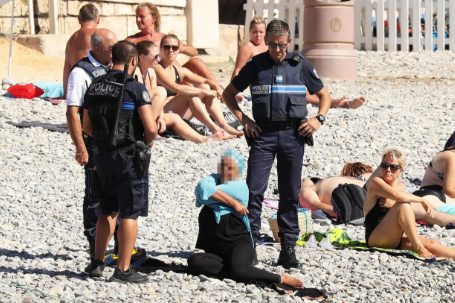In recent years, few conflicts have been as widely debated and publicized as the Isreali-Palestinian Crisis. As the U.S. presidential election approaches, candidates have to define their stance on an issue that can be quite bipartisan. Hillary Clinton and Bernie Sanders both favor two-state solution. On the right, most candidates (i.e. Jeb Bush, Ted Cruz, Marco Rubio) are vocal in their unwavering support for Israel.
With such an emotionally-triggering and controversial issue, it is sometimes difficult for students to pinpoint an objective understanding of the historical context and both sides’ narratives.
The Palestinian point of view believes that they have been unrightfully denied a state, are now forced to live under military occupation, and that Jewish settlements in the West Bank are a violation of international law. Palestinians believe that by Israel relinquishing the territory it acquired during the Arab-Israeli War (1967), they can move forward to a two-state system. From the Israeli point of view, having a homeland for the Jewish people is a necessity to protect their nation against active threats in the Middle East, and in the wake of the Holocaust they regard it as fundamental to the preservation of the Jewish people. They justify the settlements in the West Bank by saying that they are living off of land that the military has liberated, and therefore is rightfully theirs.
Over the past few months, the American news media haphazardly covered the violent outbursts between Israeli military forces and Palestinian rebel groups. For the past year security has steadily deteriorated, with attacks by Hamas militants, Jewish extremists, and Israeli soldiers causing increasing tension in the region. Israelis and Palestinians view the recent stabbings in September and October of this year in drastically different light. Most Israelis see the attacks as isolated, random attacks against innocent people, whereas Palestinians see the attacks as excessive force conducted against anyone who looks like them.
The Israeli-Palestinian crisis has been an enduring force in the Middle East for much of the 20th and 21st centuries. Despite assertions that the conflict is an ‘ancient religious struggle’ between Jews and Muslims, the past decades have depicted a fight less to do with religious tolerance, and far more to do with competing nationalisms desiring state sovereignty. Many non-Muslim Palestinians fight on the grounds of the right to being recognized as a sovereign state, or for the rights of Palestinian refugees to return to their homeland. The Arab-Israeli conflict escalated after WWII, after which the United Nations designed the plan for a two-state system. However after the Arab-Israeli War in 1948, the armistice allowed Israel’s occupation of ⅓ more land than originally promised.
The Arab-Israeli War resulted in millions of Palestinian refugees. While the Israelis thought of the war as the beginning of their nation, Palestinians saw it as a catastrophe that rendered them stateless. Furthermore, the Six-Days war in 1967 left Israel with control over now-disputed territory, in the Gaza Strip, West Bank, etc. Since 1967, there have been two major ‘intifadas’, or Palestinian uprisings, which caused the emergence of Hamas as a anti-Israeli militant group, but failed to produce any lasting peace talks.
Understand both sides of the story is essential to formulating a stance and argument for being pro-Israel or pro-Palestine. Without having a grasp of the reasoning behind each groups’ actions, taking a side becomes a dangerous game.
By Rosie Bradbury

































































